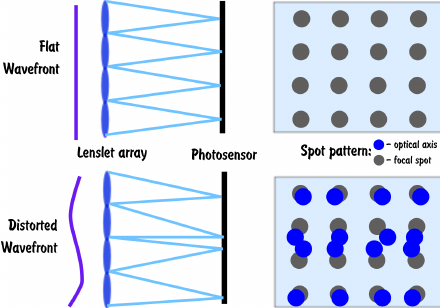Seminar announcement (May 24th at 10am): "Design and Optimization of Novel Wavefront Sensing Approaches for Visual Optics Applications" by Walter Torres
May 16, 2024
Speaker: Dr. Walter Torres-Sepúlveda (Institución Universitaria Digital de Antioquia, Medellín, Colombia, Universidad de Antioquia UdeA, Medellín, Colombia).
Title: "Design and Optimization of Novel Wavefront Sensing Approaches for Visual Optics Applications"
Date: Friday, 24th of May, 2024
Hour: 10.00 - 13.00h (Part I: Theoretical introduction (1.5h) / Part II: Practical workshop (1.5h)). For the second part you should bring a laptop.
Place: CD6 Library (Building TR11), Rambla Sant Nebridi 10, 08222-Terrassa, UPC - Campus Terrassa
Abstract:
In this seminar, it will be presented the most recent proposals that look for an enhancing of the performance of traditional wavefront sensors, such as the Hartmann-Shack sensor, widely used in the field of the optometry. All results from this research in visual optics were conducted at the Universidad de Antioquia and the IU Digital de Antioquia.
The session will begin with a detailed description of the basic operating principle of these sensors, highlighting both their advantages and limitations. Subsequently, it will delve into the various proposals to optimize their performance. Among these proposals, the use of active optical elements, such as electro-optical lenses and spatial light modulators, to create reconfigurable Hartmann-Shack sensors will be highlighted. Additionally, the feasibility of implementing convolutional neural networks for processing images captured by these sensors will be investigated, with the aim of improving their applicability, especially in aspects such as dynamic range and processing speed.
Furthermore, the potential of images with Speckle patterns containing encoded aberrations will be explored to increase sensitivity and dynamic range in wavefront scanning. This will allow for a more precise sampling of wavefronts and, consequently, greater availability of information for their reconstruction.
Finally, a practical exercise will be proposed where some of these strategies will be simulated and implemented to carry out the wavefront reconstruction process.

Share: